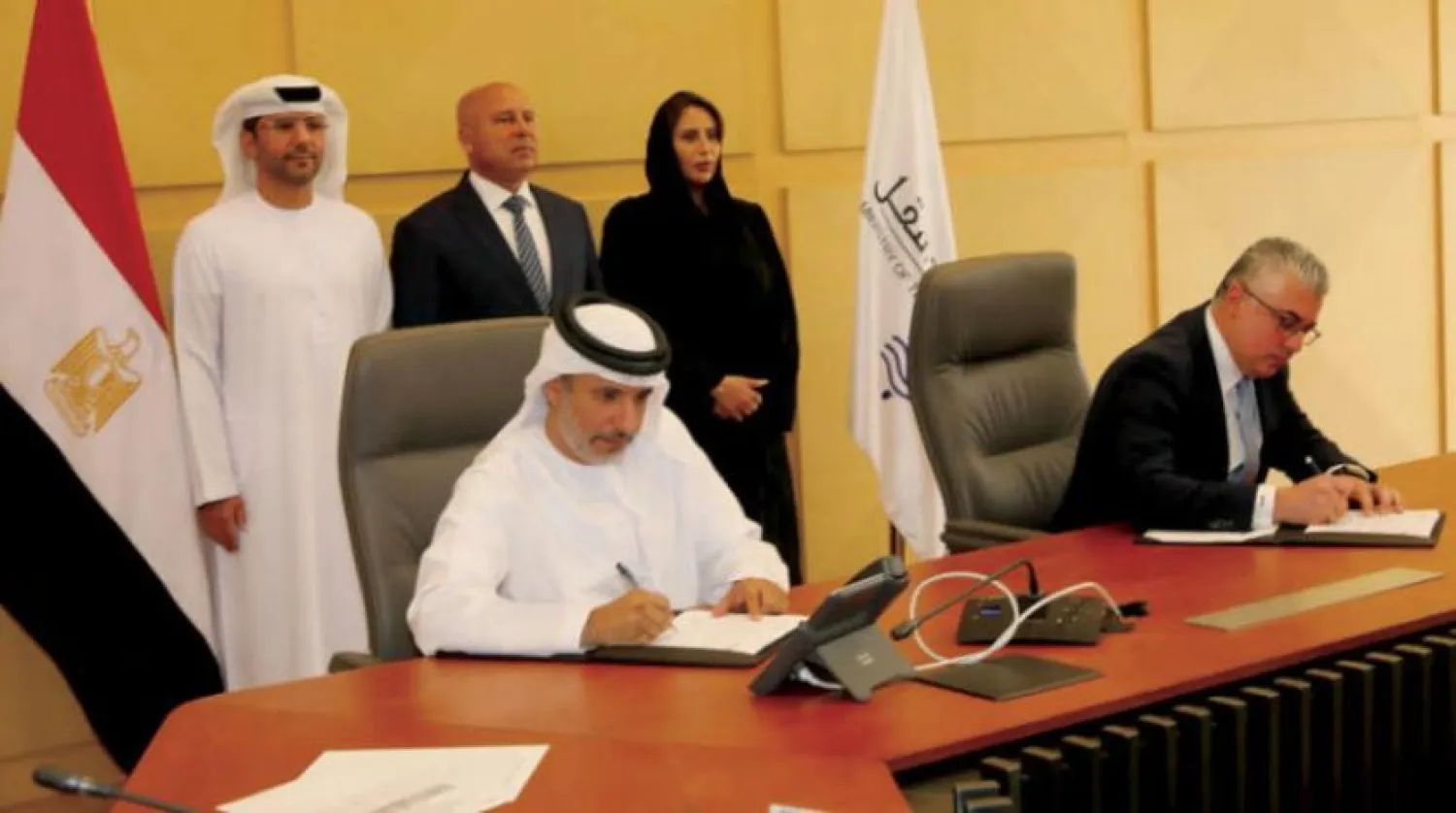Egypt's transport ministry signed on Saturday several agreements in maritime transport with AD Ports Group to manage, operate, and maintain the port of Safaga, and to allow for expanded access to multipurpose terminals and cruise routes in Hurghada and Sharm El Sheikh.
AD Ports Group signed a 30-year concession agreement worth $200 million to develop and operate Egypt's Safaga port, according to a statement released by AD Ports on Saturday.
Two additional agreements and four head terms concerning ports located in Egypt's Red Sea region and the Mediterranean Sea were also signed, the statement said.
"AD Ports Group will invest a total of up to $200 million in superstructure and equipment, buildings, and other real estate facilities and utilities’ network inside the concession area," the statement added.
Furthermore, two 15-year agreements for the development of two cement terminals in Al Arish Port and West Port Said Port were signed between AD Ports Group and the General Authority for the Suez Canal Economic Zone requiring a combined investment of around $33 million.
AD Ports Group will construct silos with a storage capacity of up to 60,000 tons in Al Arish Port and 30,000 tons in West Port Said.
Each terminal will be able to handle 1-1.5 million tons annually.
Both terminals, which will be operational in Q4 2023, are expected to contribute to doubling Egypt's cement exports to global markets.
Egyptian Minister of Transport of Egypt Kamel al-Wazir affirmed that this contract is the beginning of a huge cooperation plan between the ministry and AD Ports Group to carry out several projects in logistics services in Egypt.
The multipurpose terminal in Safaga Port will be developed over an approximate area of 810,000 square meters and it will boast a quay wall of up to 1,000 meters.
The agreements were signed in Cairo in the presence of Lieutenant-General Kamel al-Wazir and Mariam Al Kaabi, Ambassador of the UAE to Egypt.
Capt. Mohamed Juma Al Shamisi, Managing Director and Group CEO, AD Ports Group, and Major General Osama Saleh, Vice-Chairman of the Board of Directors of the Red Sea Port Authority, signed the agreement.









